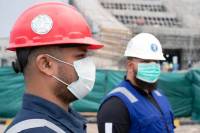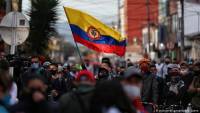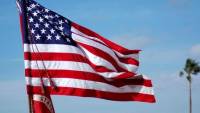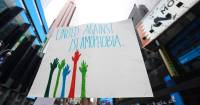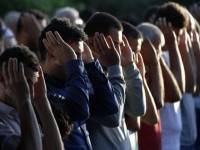No Exams In Kuwait Until Schools Open To Students
September 12, 2020The Ministry of Education of state of Kuwait has suspended all kinds of exams, both paper and online, in the new academic year (2020-2021) for all educational classes until students are able to physically attend schools, reports Al-Rai daily quoting a source from the educational sector.
The daily said, quoting a source, the Public Education Sector has asked the general instructors to prepare proposals on the evaluation mechanism for intermediate and high school students, which will most likely be as follows: 25 percent each for attendance, participation, duties and reports.
The source clarified there will be no evaluation for kindergarten and primary school students, and their classes will be in the form of televised lessons displayed in the evening on Kuwait TV.
TIMES KUWAIT
736 New Corona Cases in Kuwait Today - Total Corona Cases To 93,475
September 12, 2020The Kuwait Ministry of Health announced 736 new coronavirus (COVID-19) infections in the last 24 hours,93,475 Total Infections and 1 deaths total bringing to 558.
Colombia: Protests against police brutality leave 13 dead, over 400 injured
September 12, 2020Mass protests erupted in Colombia after a viral video showed officers repeatedly tasering a civilian. The unrest, which has claimed over a dozen lives, prompted the defense minister to apologize on behalf of the police.
Colombia has faced another night of massive protests in the capital Bogota and the nearby Soacha on Friday, after a man was killed in police custody.
A viral video showed Javier Ordonez, 46, being pinned to the ground, as police officers shot him with a stun gun repeatedly. He was taken to the local precinct and then a hospital, where he was declared dead on Wednesday.
According to the police, he was violating coronavirus restrictions by drinking alcohol in the open with friends. Authorities have charged two officers, and five others have been suspended.
"The national police apologize for any violation of the law or ignorance of regulations by any members of the institution," Defense Minister Carlos Holmes Trujillo said on Friday, apologizing on behalf of the police.
In the nights following his death, protesters have taken to the streets to demand justice for Ordonez, leading to clashes with the police. As a result, over 400 people have been injured, including nearly 200 police officers.
In Bogota, seven people, including teenagers, have died after being shot on Wednesday. Three people were killed in Soacha that day. Another three others died on Thursday.
Muslim US Marine reveals how life changed since 9/11: 'All I'm asking is see us Muslims as humans'
September 12, 2020By Jisha Joseph
Nineteen years after the most devastating terrorist attack in American history, a US Marine Veteran is opening up about how the events of 9/11 have impacted his life as a Muslim in the country. Mansoor T Shams — who served four years in the US Marine Corps where he attained the rank of corporal and received several honors — recently shared his experience in an eye-opening op-ed for CNN. "Like many of us, I vividly remember where I was and what I was doing on 9/11. Nearly one year earlier, I had made one of the toughest decisions any young 18-year-old American could ever make -- I raised my hand to 'support and defend the Constitution of the United States against all enemies foreign and domestic' and became part of America's finest. I became a United States Marine," he began.
Shams recounted how he — like his fellow Marines — felt horrified, confused, and frustrated as he watched footage of the hijacked aircrafts crashing into the Twin Towers. "As the days went on, we would come to find out the attacks originated from Afghanistan, which borders Pakistan, the country I was born in. It was heart wrenching, painful to say the least. Deep down I began wondering why did it have to be the people with whom I shared a heritage, and, worse, the same faith. Why not someone else? Why not some other group? Why did the terrorists have to be people who claimed to follow my beautiful Islam? In hindsight it probably wasn't the right sort of thinking," he mused.
The veteran, who is today a public speaker and the founder of MuslimMarine.org — a platform he uses "to counter hate, bigotry, and Islamophobia through education, conversation, and dialogue" — went on to reveal how he began to experience some level of discrimination in the Marine Corps following the attack. "I remember certain Marines giving me weird looks while some others, half-jokingly and openly, even called me things like Taliban, terrorist, and Osama bin Laden. In the beginning, I'd either try to ignore it or just laugh it off -- but as time went on, I could feel things starting to get to me. I made complaints to my leadership, but they did little to intervene. Sadly, sometimes they were part of the problem," he wrote.
"Adjusting to the Marine Corps way of life up until that point had been hard enough. Now, I was dealing with a new environment that was more intimidating. Months later, I was moved to a different unit on base and able to start over, earning a Marine of the Quarter award and later a meritorious promotion to Corporal," Shams continued. "To be absolutely clear, I'm not saying the Marine Corps is full of racists and bigots. I'm just saying, unfortunately, racism, and bigotry also exists within the armed forces," he clarified. Despite the discrimination he faced, Shams revealed that he was determined to fulfill the oath he had taken as a US Marine.
"I reached out to my leadership to make them aware of my unique background: my ability to speak the languages of Urdu, Punjabi, Hindi, my familiarity with cultures and traditions in that part of the world, and even my Muslim faith since Afghanistan is a Muslim majority country. In short, I was asking my leadership to use me in any way that could be helpful, even if that meant sending me into the heat of battle. I was ready to die for my country. This was my mindset. This was the level of love and dedication I had for America. In many ways, what I was doing was Islam in action, because love and service to [the] country of residence is part of my Islamic faith as taught by the founder of Islam, Prophet Muhammad," he wrote.
Nearly two decades later, Shams notes that "if you aren't tanned skinned, don't don a black beard like I do or wear a hijab as many of my sisters in the Muslim community do, you likely won't understand the Muslim experience." He explained how using 9/11 to justify the constant villainizing of the Muslim faith has resulted in some Muslims feeling "as if we aren't even allowed to grieve or honor those innocent lives lost." Shams referred to the backlash against Democratic Minnesota Rep. Ilhan Omar last year when she spoke out about the rampant Islamophobia in the country.
"For far too long (almost two decades now), Muslims have had to bear dreadful discrimination, persecution, hate, and bigotry because of the actions of 19 terrorists who claimed the peaceful religion of Islam. So yes, "some people did something" and it's unfair to associate all Muslims with the atrocity," Shams wrote. "I'm asking my fellow Americans who may still hold some sort of anti-Muslim discrimination in their hearts because of 9/11 to take a moment to think and to understand that Muslims were also among the victims of the attack. Muslims have served and died for this nation since the days of George Washington."
"In fact, there has never been an America without Muslims. So as you commemorate 9/11 this year, let's honor those innocent lives lost, together, hand in hand, in solidarity as Americans. But whatever you do, please don't bring our Muslim faith into it," he continued. "Because if you do, you are not only disrespecting my honorable service to this nation but every Muslim American living or dead who has given their all (whether in uniform or without) to this America. I'm not asking for a special favor. All I'm asking is see us Muslims as humans, as your fellow Americans without prejudice. That's all."/ newsbreak
Yes, 9/11 Did Cause An Increase In Islamophobia
September 12, 2020ELLY BELLE
For the last 19 years, 9/11 has been a somber, difficult day — a day of mourning for Americans. On it, we commemorate the 2,977 lives lost when terrorist flew planes into the World Trade Center in New York City, the Pentagon in Washington, D.C., and a field in Pennsylvania.
While the attacks that day caused direct devastation, myriad aftershocks have had other horrifying consequences — notably, the endless wars the U.S. started in Afghanistan and Iraq. Another, immediate effect of the attacks was a rise in Islamophobia throughout the United States. Though Islamophobia certainly wasn’t invented in 2001, political and social reactions to 9/11 fueled ignorance and bigotry and violence towards Muslims.
And this wasn't just limited to the weeks following 9/11, in the years since then, anti-Islamic hate crimes have surged across the U.S. This rise in Islamophobia is well-documented, which made it all the more surprising that New York Times journalist Paul Krugman tweeted earlier today that "there wasn't a mass outbreak of anti-Muslim sentiment and violence."
In the months following 9/11, the number of hate crimes against Muslims jumped: In 2000, there were just 28 recorded hate crimes; in 2001, there were 481. While anti-Muslim hate crimes used to be the second-least reported type of religious-bias incidents, they quickly became the second-highest reported; Muslims spoke out about being shamed and physically assaulted in public.
In the week after September 11 alone, three people were killed because of Islamophobia. On September 15, Balbir Singh Sodhi — who was Sikh but, according to NPR, was mistaken for being Muslim because of his turban — was killed in Arizona. The same day, Waqar Hasan and Vasudev Patel were gunned down in Texas, where the perpetrator said he did it to “avenge" the United States on 9/11.
The hatred hasn't stopped, and anti-Muslim sentiment fueled by 9/11 continues to affect Muslims in America. In a survey from 2017, 75% of Muslim Americans said there’s a lot of discrimination against Muslims in the United States, with 48% of those surveyed responding they had experienced at least one incident of discrimination in the last year. Across America, Muslims have continued to speak out about the ways they’re treated with suspicion, called names, or singled out by airport security.
“I have to go an extra hour earlier than anybody else, because it’s not random checking,” Nafees Syed, who wears a hijab, told the New York Times in 2016.
To educate people and change the mindset that Islam is synonymous with terrorism, Muslim activists and organizers like Heraa Hashmi, who created MuslimsCondemn.com, have worked to spread awareness. She and others have attempted to shift the narrative against Muslims that has been pervasive since 2001, and make people understand the faults of stereotyping a whole religion of 1.6 billion people.
"I wanted to show people how weak the argument that Muslims don’t care about terrorism is,” Hashmi told The Guardian. Teachers, too, have found the need to create special curricula to talk about 9/11 and contextualize and correct anti-Muslim sentiment.
Islamophobia has also been fueled by politicians, including our current president and members of his cabinet. After Trump’s 2016 campaign started, Islamophobia peaked, and the number of assaults against Muslims in America rose significantly between 2015 and 2016, surpassing the peak that had been reached in 2001, according to a Pew Research Center analysis of hate crimes statistics.
Before he even got to the White House, Trump falsely alleged that Muslims were cheering in New York after 9/11 and celebrating the attacks. One of his first acts in office was to attempt to implement a "Muslim ban" — an attempt to suspend immigration from predominantly Muslim countries.
Today, many Muslims are still struggling with both the ignorance and hatred fueled by Islamophobia, as well as constant political attacks. “We must always acknowledge and remember that Islamophobia has always existed in this country, specifically against enslaved people and Black American Muslims post-slavery. After 9/11, hatred for Muslims intensified, masked under a guise of national security and justified fear of others. This manifested into the creation of ICE, the TSA, desecration of mosques, and hate crimes,” Reina Sultan, a Muslim journalist, tells Refinery29. “That’s not normal mourning, that’s deadly racism and it’s continuing today with a fascist president who enacted a Muslim ban as soon as he entered office.”/yahoo news
Uyghur victim families narrate horrific experiences about Chinese atrocities
September 12, 2020According to reports, around 80 per cent of Uyghur women of childbearing age in the four Uyghur-populated prefectures have been targeted for forced sterilizationnal Image | Photo Credit: ANI
London, UK: As China faces worldwide condemnation over the atrocities faced by Uyghur Muslims of Xinjiang Autonomous Region, victims from the community narrates horrific experiences in a recent webinar hosted by Campaign for Uyghurs, an organization for the human rights and democratic freedoms for the Uyghurs and other Turkic people.
According to the recent report by the academic Adeian Zenz and IPAC, Uyghur women are subject to forced abortion particularly if they fail to comply with the Chinese Communist Party arbitrary birth spacing requirements which generally require Uyghur women to wait between 3 or 4 years in between having children.
One of the former detainees Zumret Dawut said, "We were administered unknown medicines. The medication made us extremely lethargic and we noticed that our menstrual cycle stopped and till that day my cycle has not returned. We were also injected with an unknown substance once a week".
Ziba Murat, an Uyghur American residing in Virginia and also a daughter of Dr Gulshan Abbas who is under Chinese government detention said, "My mother is missing and I don't know where she was taken from her home to concentration camps on September 11, 2018. My mom's case is just a tip of the iceberg, as there are millions of other families who have suffered in similar ways."
The Communist Party of China has detained at least 8 million Uyghurs and other minorities in concentration camps. Reports claim that At least 80,000 Uyghur were sent to work in factories across China against their will.
Kelley Currie, Ambassador-at-large for global women issues who was also part of the panel said, "The CCP has always shown utter disregard to the sanity of human lives and basic human dignity and this is what is happening in Xinjiang. Their effort to attack the core of Uyghur identity at the family level is so pernicious that we often lack a vocabulary to even explain how horrific this is".
Meanwhile, Nury A. Turkel, U.S. commission on international religious freedom said: "UCIRF commended the U.S. government for taking action against these issues by banning imports from Chinese companies suspected of using forced labours".
According to reports, around 80 per cent of Uyghur women of childbearing age in the four Uyghur-populated prefectures have been targeted for forced sterilization./ ANI
Canada reports zero COVID-19 deaths for first time since March
September 12, 2020TORONTO (Reuters) - Canada reported zero COVID-19 deaths in the past 24 hours for the first time since March 15, according to public health agency data released late on Friday.
Canada’s death toll from the pandemic stood at 9,163 as of Sept. 11, the same as the number of the deaths reported on Sept. 10, government data showed. The number of positive cases rose by 702 to 135,626 on Sept. 11 from the previous day, the data showed.
With most provinces easing lockdown restrictions and as schools reopen for in-person classes, Canada’s infections have seen a mild pick-up in recent days. Authorities have been on high alert to avoid fresh outbreaks, and provinces including British Columbia have imposed new curbs to tackle the spread of the virus.
Still, Canada’s situation looks relatively healthy compared to its southern neighbor. Across the border in the United States, more than 190,000 people have died from the pandemic and more than 6.38 million people have been infected.
Canada’s experience dealing with SARS, or severe acute respiratory syndrome, helped health officials be better prepared. SARS killed 44 people in Canada, the only country outside Asia to report deaths from that outbreak in 2002-2003.
Canada’s first recorded case of coronavirus was in Toronto, on Jan. 25. Both Ontario, the country’s most populous province, and neighboring Quebec turned into the hot spots for COVID-19 infections.
Both provinces struggled with outbreaks in long-term care homes. Canada’s first COVID-19 death was reported on March 9 at a British Columbia long-term care facility.
As COVID-19 cases began to spike in mid-March, Canada shut its international borders to all foreign nationals and ramped up tests in an effort to isolate infected patients. Ontario and Alberta faced outbreaks among temporary foreign workers on farms and meat-processing plants, which slowed reopening in certain regions.
Tesla plans to export China-made Model 3s to Asia and Europe, say sources
September 12, 2020SHANGHAI (Reuters) - Tesla TSLA.O is planning to export Model 3 vehicles made in China to Asian and European markets, two sources familiar with the matter told Reuters on Friday.
The U.S. automaker, which started delivering Model 3 electric sedans from its Shanghai factory in December, also plans from next year to sell China-made Model 3 vehicles to Japan and Hong Kong, one of the sources said.
8,800 migrant children expelled at U.S. border under coronavirus rules
September 12, 2020About 8,800 unaccompanied children have been quickly expelled from the United States along the Mexico border under a pandemic-related measure that effectively ended asylum, authorities said Friday. The Trump administration has expelled more than 159,000 people since the U.S. Centers for Disease Control and Prevention emergency order took effect in March.
U.S. President Donald Trump's administration has expelled about 8,800 unaccompanied migrant children intercepted at the U.S.-Mexico border since March 20 under rules seeking to limit the spread of the novel coronavirus in the United States, according to court documents filed Friday by the Justice Department.
The administration had declined to disclose the numbers since June, when it said about 2,000 children had been expelled. Immigration advocates had argued that many more were likely subject to the rules, but the scope of the expulsions was not clear until Friday.
The administration implemented new border rules on March 21 that scrapped decades-old practices under laws meant to protect children from human trafficking and offer them a chance to seek asylum in a U.S. immigration court. The administration said the emergency rules were designed to avert coronavirus outbreaks inside migrant holding facilities and among the broader U.S. population.
Since then, U.S. officials have been quickly removing migrants, including unaccompanied minors, without standard immigration proceedings.
Trump, seeking re-election on Nov. 3, has taken a hard line toward legal and illegal immigration as president.
Immigration advocates have argued that the new regulations put migrants, especially children, at grave risk. The federal government has been holding them for days or sometimes weeks in hotels with unlicensed contractors to look after them. Attorneys have said the children's personal information is not recorded in the usual computer systems, making them almost impossible to track.
In June, U.S. Customs and Border Protection chief Mark Morgan said that about 2,000 unaccompanied children had been expelled under the order.
The American Civil Liberties Union sued the administration over the order in June, and the agency has declined to update the numbers since then, citing pending litigation.
The government produced the figures in a Justice Department filing to the San Francisco-based 9th U.S. Circuit Court of Appeals objecting to a Sept. 4 order that it stop holding children in hotels before expelling them.
In addition to expelling about 8,800 children, the government said it had expelled 159,000 migrants overall, and 7,600 family units./ Reuters
Oil ends lower for second week as stockpiles rise, demand weakens
September 12, 2020NEW YORK (Reuters) - Oil prices were little changed on Friday, but posted their second straight weekly loss as stockpiles rise around the world and fuel demand struggles to rebound to pre-coronavirus levels.
Both Brent and U.S. crude lost about 6% on the week after a series of signals that showed markets still have an abundance of supply. Saudi Arabia and Kuwait cut official selling prices to Asia, U.S. stockpiles rose and traders are booking vessels for storage.
Brent LCOc1 ended the session down 23 cents, or 0.6%, at $39.83 a barrel while U.S. crude CLc1 settled up 3 cents at $37.33 a barrel.
Coronavirus infections are growing in several countries, led by India, where the health ministry reported a record daily jump of 96,551 new cases on Friday, taking the official total to 4.5 million.
U.S. stock markets ended lower for a second week following several economic indicators that suggest a long and difficult recovery from the pandemic.
“The financial markets are continuing to set the tone, including on the oil market... fears about an oversupply have added to the general feeling of uncertainty,” Commerzbank analysts said in a note.
In the United States, crude stockpiles rose 2 million barrels last week. Refineries slowly returned to operations after production sites were shut due to storms in the Gulf of Mexico. [EIA/S] [ENERGYUSA]
Traders are starting to book tankers again to store crude oil and diesel, another signal of oversupply amid a stalled economic recovery as the COVID-19 pandemic continues.


